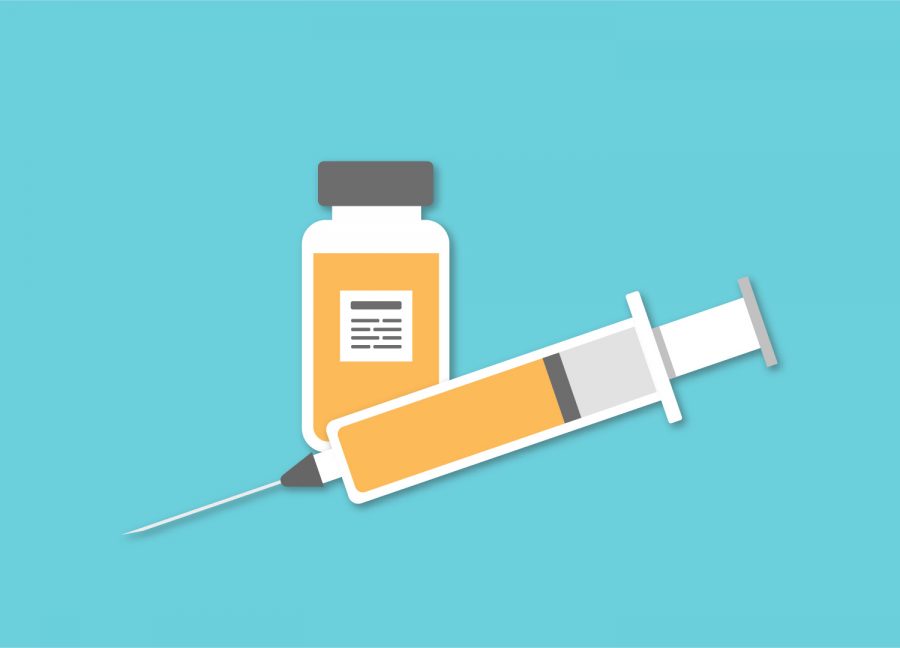Hope in the Race for a COVID-19 Vaccine
As the COVID-19 pandemic stretches with no foreseeable end in sight, medical researchers and pharmaceutical companies have been working to develop a vaccine. This past week, pharmaceutical companies Pfizer and Moderna revealed positive news regarding COVID-19 vaccines currently in development.
According to National Public Radio (NPR), Pfizer released interim clinical results Nov. 9 from a test study conducted with their experimental COVID-19 vaccine. The vaccine proved to be more than 90% effective, far above the minimum standard of 50% set by the Food and Drug Administration (FDA).
The study involved 43,548 volunteers from different backgrounds. Each participant received two injections of the vaccine, spaced 21 days apart. NPR analyzed and compared cases of COVID-19 among volunteers who had received the vaccine to those who received a placebo. Out of the thousands of volunteers, 94 contracted COVID-19. While this is just a preliminary trial, the Pfizer vaccine is the first vaccine in development to have data exceeding the requisite 50% efficacy mark.
Carolyn Stenbak, an associate professor of biology at Seattle University, expressed cautious excitement when she first heard about the news that the Pfizer vaccine is 90% effective. She believes that vaccines like Pfizer’s will work. However, she is not fully certain because these results are only from the preliminary trial, which is still ongoing.
She explained the groundbreaking science and technology of the Pfizer COVID-19 vaccine as well as those in development from other companies like Moderna.
“Of the Pfizer vaccine, this one uses mRNA (messenger RNA), which has never been used before in a licensed vaccine,” Stenbak said. “We have other vaccines in development that are also using this mRNAtechnology. The majority of these vaccines are all targeting the same viral proteins called spike proteins.”
She also described the biological process of the Pfizer vaccine, which exposes healthy individuals to a spike protein so that the immune system can produce antibodies that will bind to the viral protein and help prevent infection or disease.
Additionally, Stenbak pointed out the many scientific challenges that will lie ahead, mainly the fact that a COVID-19 vaccine’s impact will not immediately be felt, but will make dividends over time. This is due to the fact that it will take time for Pfizer or some other company’s COVID-19 vaccine to get approved and then get distributed to people worldwide.
In particular, there will likely be the need for more than one vaccine to control the pandemic due to the fact that Pfizer cannot make enough vaccines for everyone.
Currently, Pfizer has enough vaccines for only 15 to 20 million people. Frontline health care workers, the elderly and people with pre-existing conditions will likely be the first to get vaccinated.
Another challenge Stenbak mentioned is that the Pfizer vaccine has to be kept at -75 degrees celsius, which will make it harder to store and distribute in developing countries around the world.
There is also a societal challenge to the success of COVID-19 vaccines due to a growing anti-vaccine movement. Emma Federico, a fourth-year Seattle U student majoring in Cell and Molecular Biology spoke to this issue.
“Vaccine fear is a real problem,” Federico said. “The myth that vaccines cause autism has scared a lot of people, and there is a large population within the United States that chose not to vaccinate. This vaccine will only be effective if we are able to give it to a large majority of the people in the U.S. and abroad”.
Federico is worried that people opposed to wearing a mask will not want to take a vaccine or will stop following pandemic protocols once they receive the vaccine. She knows that in order to contain and end this dangerous pandemic, we will need a combination of masks, social distancing and a vaccine.
Although some people like Stanbak are willing to take a COVID-19 vaccine if it has passed scientific review by the FDA and the independent review consul, there is still a long way to go before a foolproof COVID-19 vaccine will be made available to the public.











